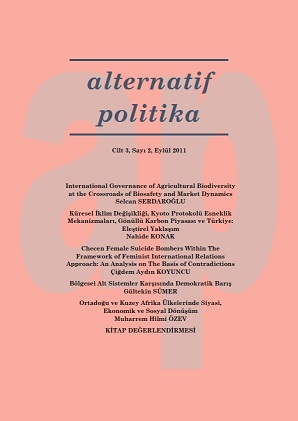Bölgesel Alt Sistemler Karşisinda Demokratik Bariş
Democratic Peace Confronts Regional Subsystems
Author(s): Gültekin SümerSubject(s): Government/Political systems, Sociology of Politics, Peace and Conflict Studies
Published by: Rasim Özgür DÖNMEZ
Keywords: Democratic Peace; Regional Subsystem; Liberal Democracies; Pluralistic Security Community; Europe;
Summary/Abstract: Whereas Europe occupies a significant position regarding the theory of democratic peace, it would be misleading to regard her as the sole regional subsystem on which theory of democratic peace would be based. For the reality of democratic peace in the Western world cannot be understood without the dynamics peculiar to Europe. The existence of independent units competing with each other for power and influence has given the Continent its very characteristic. Thus, foreign policies of the states have not risen over democratic peace, but rather democracies were born into the nation-states in quest for furthering their interests. Unprecedented technological achievements increased the destructive capacity of the subsystem whose consequences favored the emergence of an international society in Europe. The emergence of a pluralistic security community entailing the sense of common “we” - embodied in the example of European Union- amounted to permanent peace in Europe. Thus, it is significant to regard democratic peace as a sub-system phenomenon rather than a dyadic one. Due to this very reason, possible democratizations in non-western subsystems will signify a sounder testing of the theory since democratic peace is open to more vulnerability in such subsystems. Given the limited amount of cases to be handled, the conclusions reached by the advocates of democratic peace are not strong enough to support the democratic peace theory. The strength of democratic peace is to be clarified inasmuch as democratic dyads are subjected to external dynamics tough enough to compel democracies to step back from their democratic identities. Since war proneness is directly related to the very characteristics of each subsystem, total elimination of war might only be possible with the formation of pluralistic security communities. Otherwise, such political geographies may easily succumb to constructive structures that can bring about outbreak of wars.
Journal: Alternatif Politika
- Issue Year: 3/2011
- Issue No: 2
- Page Range: 198-227
- Page Count: 30
- Language: Turkish

